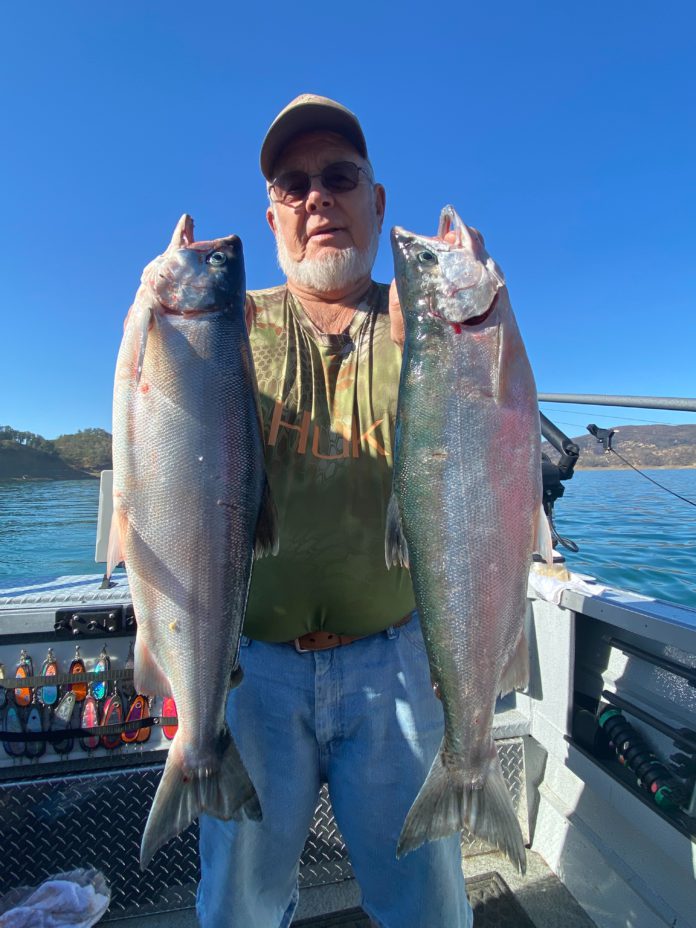WINTERS – The most recent, and perhaps the potentially the most devastating, invasive species to enter California’s waters is the golden mussel, discovered at several sites within the California Delta and in the reservoirs of the California Aqueduct. California boaters already must be inspected at several lakes prior to launching due to the potential spread of quagga and zebra mussels, but the golden mussel presents a more potent threat as they can establish in waters with considerably lower calcium levels than required by quagga and zebra mussels. Since ocean-going vessels enter the California Delta to offload at the Port of Stockton and Port of Sacramento, invasive species such as the golden mussel are ‘easily introduced to California by a ship traveling from an international port, most likely via ballast water release from commercial shipping and introduced to other rivers by overland or aquatic transport on boat hulls or trailers,’ according to the California Department of Fish and Wildlife.
Lake Berryessa was the first domino to fall in northern California due to the potential spread of the invasive golden mussel, and within the past week, Lakes Hennesy, Camanche, and New Melones have followed suit on temporary 30-day launch closures. Lake Don Pedro is monitoring the situation with the possibility of a temporary closure at this body of water. Although the individual agencies responsible for the lakes are responding with some similarity, there are differences in gaining access to the water. California’s lakes are regulated by a plethora of organizations, and like the confusion of who was open with what restrictions during the pandemic, the golden mussel is being met with varying responses. One commonality is that hand-launched boats without electric motors such as kayaks or canoes can be launched with only an inspection. What is unclear if lakes will honor a decontaminated boat with a green tag from another body of water.
Since the potential for the invasive golden mussel is devastating to water systems, these lakes have chosen the path of closing access to allow time to develop protocol. Golden mussels can spread up to 150 miles per year making containment efforts especially challenging. They will clog pipes, filters, and other water systems, causing costly damage to water treatment plants and hydroelectric facilities. Their attachment to surfaces also leads to corrosion and degradation of infrastructure. An adult mussel can filter up to 1 liter of water per day, and 1 square meter of surface can host up to 200,000 mussels. 10 square feet of golden mussels can remove plankton from 1.5 million gallons of water per month, starving fish and damaging fisheries. They feed on plankton, a crucial food source for fish like bass, trout, catfish, and kokanee fry. Despite skepticism from some boaters, golden mussels are a legitimate threat.
At Lake Berryessa, there are two options for launching: a 30-day quarantine after your boat is sealed with a red tag or going through the hot water decontamination process at Steel Canyon Recreation Area. There are plans to install decontamination stations at all marinas on the lake. A unit costs between $25 and $35,000, and staff need to be trained for a Level 2 Certification from the Pacific Coast Marine Fisheries.
Lake Camanche and Pardee are regulated by the East Bay Municipal Utilities District, and the South Shore Recreation Area at Camanche has an existing Watercraft Decontamination Station. The lake is currently closed to all launching without the red/green tag systems. At New Melones, the lake is closed to boating for 30 days starting on December 7, and there is only one launch ramp at Glory Hole open as there is insufficient staff to the other two ramps. Mike
McGraw, US Bureau of Reclamation site supervisor for the lake, said, “We are hoping to have the decontamination unit in place at our marina within a few weeks along with the state certifying a mussel-detection dog for golden mussel larvae. The dog we use is currently only trained for adult golden mussels, and larvae aren’t presently available. It seems that this will become the new normal for operating launches with decontamination units for a fee to launch along with the tag system.”
The restrictions have been met with cynicism and outrage on social media from boaters, but this invader possesses devastating environmental and economic consequences. One thing is clear, human impact is interconnected, and invasive species have become the norm. Only time will tell if these measures can curb the spread of the golden mussel, but regardless of anyone’s opinion or inconvenience on the restrictions, cooperation is essential. One thing is for certain, the price tag for launching a boat just went up exponentially.




